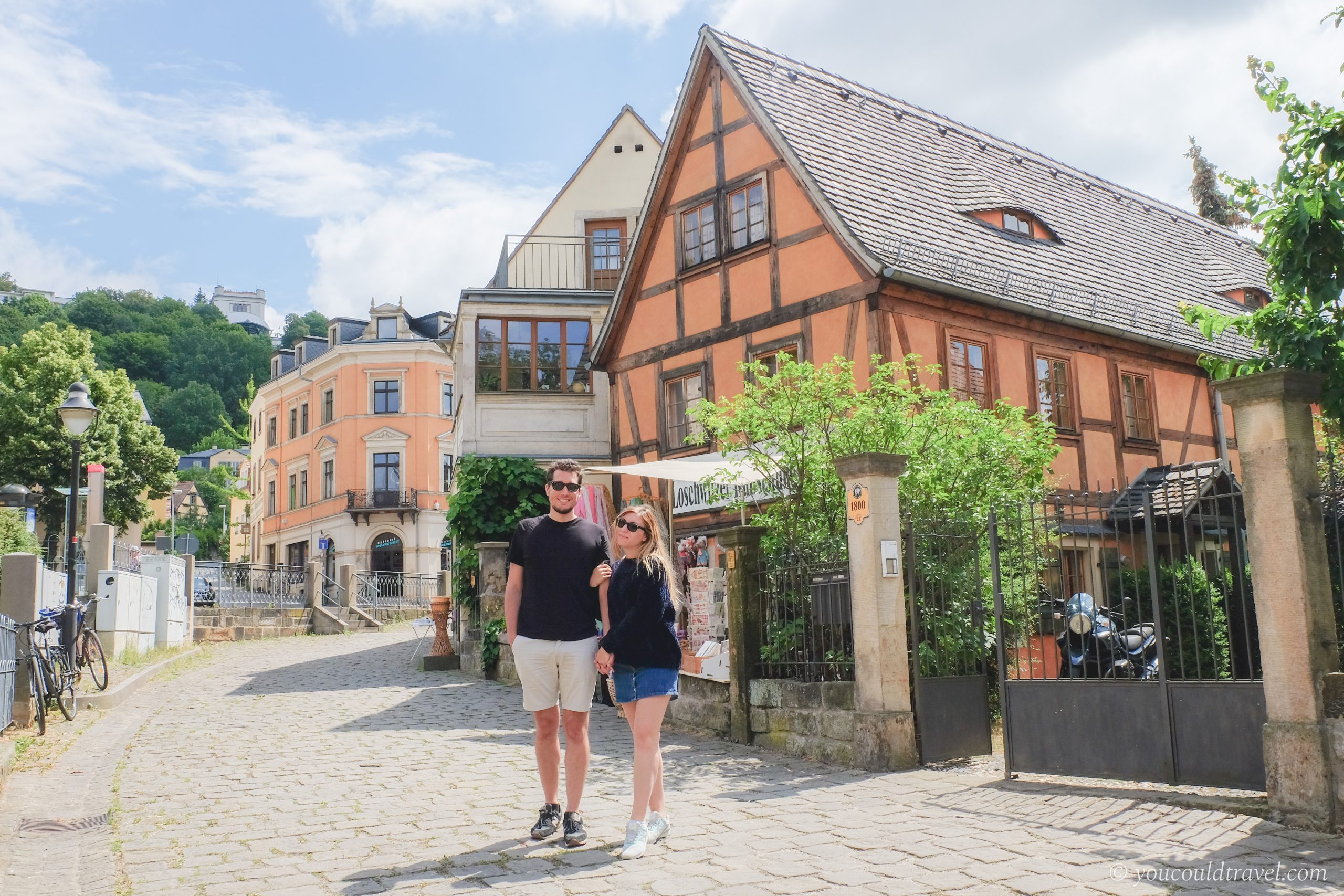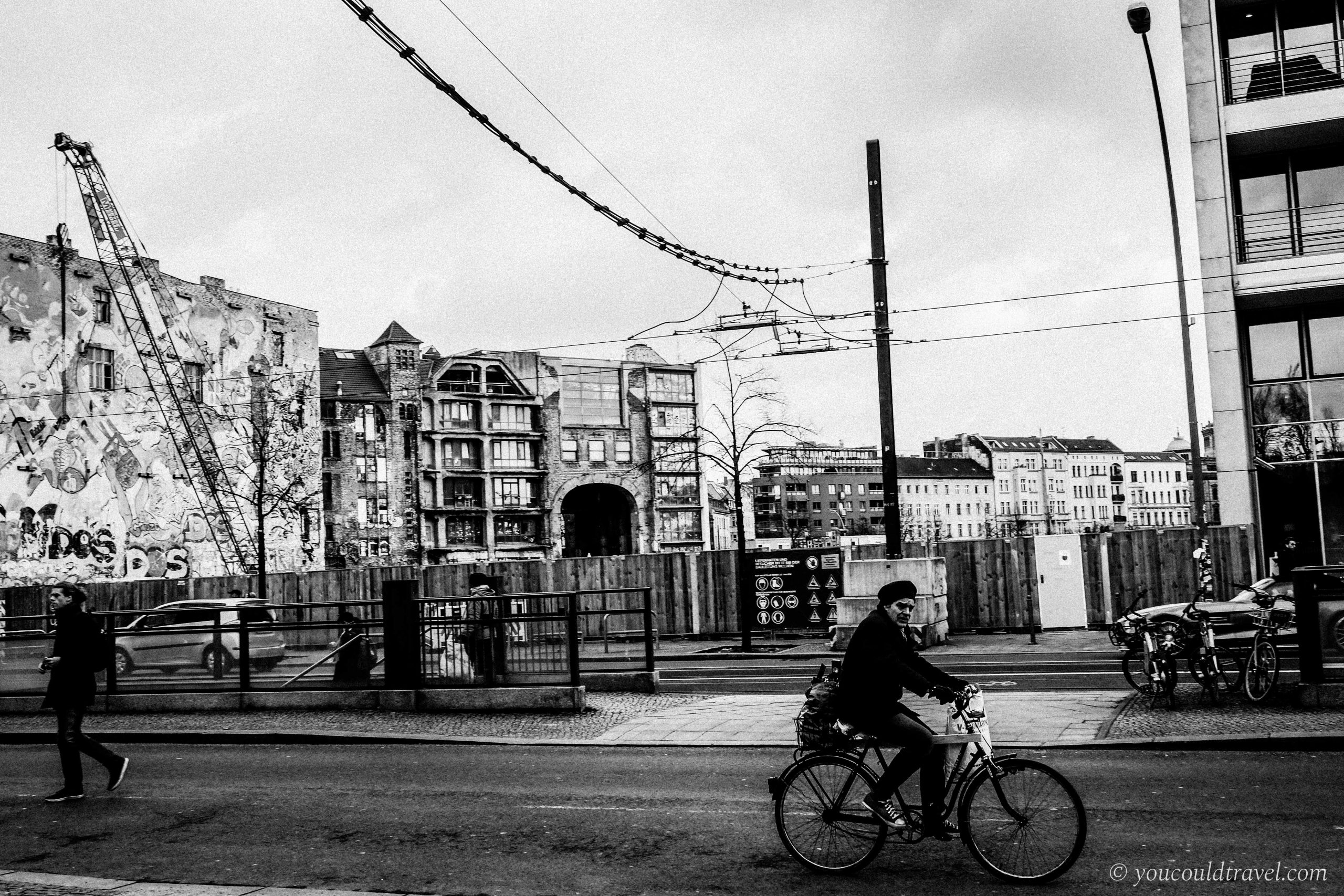Some time ago we decided to do a road trip to Germany. We visited some major cities in partnership with the local tourism boards. At the end of the trip, one city made a major impression: Dresden. Our time living in Budapest was coming to an end and we needed to come up with a new location. Living in Germany seemed like a sensible choice at the time, so we thought we should move to Dresden, give the city a go and take it from there.
Moving to Germany can seem pretty daunting right? That’s because it is. There are many things to take into account before you decide to settle here. We’re here to help. We’re going to tell everything you need to consider before making the move to Germany, as part of our own narrative. Things which happened to us, how we coped with unforeseen situations and what continues to be a challenge.
Bucke up, grab a cup of tea, and let us tell you the story of what happened, once we decided to move to Germany.
Initial Decision
Moving to Germany came as a fairly easy decision for us. We wanted a place where we can be close to a forest, have lots of outdoor opportunities and live in a relatively smallish city, similar to the size of Bristol. If you are new here, some years back we decided to move away from the UK. Ever since we’ve been searching for a place to call home. We lived in several countries and we’re now trying our luck in Germany.
As we are dual nationals, both EU passports as well as British passports, visas didn’t pose an issue for us. But for everyone who is considering Germany, checking the visa process is a must. Can you qualify to live in Germany? That’s the first consideration for anyone. How long will it take to obtain a visa and how much does the process cost?
Another important consideration is where in Germany do you want to live? Some cities are a lot more expensive than others. Every city has something unique to offer and it’s a good idea to do your research, or better yet, come visit Germany before you make up your mind.

For example, we thought we’d love West Germany a lot more, but we had nothing but misfortunes there. So once we found our city, it was a lot easier to plan the move.
So why Germany? Is it for the living conditions? Do you have friends and family already here? Will you be able to find work? Do you speak the language? You should create a list of pros and cons. The idea of Germany might seem super appealing but it’s important to look at the numbers and cold facts. Is it even feasible to be in Germany? Why or why not?
Even though the visa was not an issue for us, we also did a pro and cons list. After our complete fiasco living in Spain, it seemed only natural that we would endeavour to do better research.
So is Germany for you? Is this your final decision? Here are the things you need to consider next. Once we decided to move to Dresden, we created a plan on how to move. Some things went smoothly, while others proved to be a bit of a disaster. But hey, that’s the beauty of trying a new country: there are ups and downs along the way.

Prepare for your move
This may seem obvious, but it’s important to properly prepare for your move. Do you already have a job offer? Then your move will go a lot smoother, as you have the job security waiting for you.
Do you want to be in Germany for a couple of months until you find a long term accommodation option and a proper job? Then do your research in advance and rent a short term flat somewhere like AirBnB. This is what we did in fact. For us was relatively easy because we knew the exact location in Dresden where we wanted to live, so we scouted the area until we found a cute AirBnB flat. We rented it for short term before finding our own long term accommodation option.
As for jobs, we are digital nomads who can live from anywhere in the world. So it was just a matter of setting up an office in our own home and just working.

It goes without saying that you should organise for your visa before your arrival. Germany has a lot of red tape so make sure you take timings into account. It can take months to resolve something which may otherwise seem trivial. For example, it takes 6-8 weeks minimum to start a company here, whereas in the UK it takes just 10 minutes online.
We recommend checking out a few groups on Facebooks tailored towards expats in Germany. You can get a lot of advice and guidance as well as support when needed. Plus, there’s a good chance you might meet other expats and already start making friends.

Have savings
Unless you already have a job lined up in Germany, chances are you are going to need some good savings to be able to survive a few months until you settle down properly. Even with a job lined up, you will still need some savings to put down a deposit for your rental and buy furniture, including a kitchen. We will get to this point, but German flats come unfurnished and usually without any basic appliances.
Calculate how long you can survive with your savings and make sure you add an extra month or two on top of it. It’s always best to be prepared and feel safe than become overwhelmed the moment you arrive in a new country.

In terms of finding an English speaking job here in Germany, chances are fairly slim. I know some expats managed to successfully do it, but these jobs are not always easy to find. The best advice is not bet on it! So do your research before you make the move and ensure you know exactly what types of jobs you can get access to.
Moving to Germany can be an expensive process so of course, we want to make sure you succeed, have a fun time and not waste a lot of money.
Registration
The moment you arrive in Germany, you have two weeks to complete the registration (for those planning on staying in Germany long term and not for holiday purposes). You will need to book an appointment with your local town hall and register as residents. I can’t speak for any other city, but here in Dresden the process was very simple. We booked an appointment online, we went to the town hall with a note from our landlord to prove that we have accommodation and we registered.
The lady spoke good English and helped us with the process. We recommend writing down some things or questions in German just to be prepared for the eventuality that you might not have an English speaker official.

Find a house
There are mixed opinions about finding a house in Germany. Some say it’s super easy while others struggle for months. The best thing we can do is to tell you how it happened for us. Every evening we walked around our neighbourhood to just relax. One evening we saw a newly renovated house with a big sign saying “flats for rent”. We decided to try our luck and email the agency to see if the agent speaks any English and would be interested in showing us the flat.
We were already in talks with an English expat here who heard from another English friend there is a flat available for rental in our area. So it all worked out pretty well. The agent spoke good English and turns out the family who moved in downstairs was English/German, so the agent already had experience dealing with foreigners. Quite lucky!

But this process took us some time. There’s no great rental website available here in Germany, and most of the good flats are available via agents you already have a connection with or through word of mouth. So if finding a flat is your top priority, we’d say to register with as many agents as possible and start walking around the neighbourhood to find houses for rent. It’s also crucial you establish a support network with other expats or work colleagues to help you out as well. There’s always someone who knows of a flat and so on.
So you found a flat? Awesome! Now comes the hard part! No joke! You need to prove your income here before you can get the accommodation contract. In some places, you need to earn 3.5x or 4.5x more than the price of the flat. Or, if you have savings, you need really decent savings to account to really convince the landlord you won’t defer in your payments. And yes, every penny counts.

Consider the rent cold vs warm. Most rent prices are cold so you need to calculate how much it will cost to maintain the place. There’s electricity, water, internet, some common bills if you live in a flat etc and a compulsory radio tax you need to pay monthly to the government (like a TV licence but for the radio). And no, unlike the UK it doesn’t matter if you don’t use any radio or TV, you still need to pay this.
You now got the key and are ready to move in. Not so fast… the flat is very likely unfurnished and doesn’t have a kitchen. When we got our keys, we didn’t even have lights in our apartment. So it took around a month to make it look like a home. Organise for a kitchen as soon as possible as the process usually takes 4-6 weeks. If you don’t speak German, try your local Ikea and try to find an English speaker kitchen advisor. You will have to wait for someone to come to your home, do the proper measurements, and then go back to Ikea, plan your kitchen and make sure it’s actually fit for purpose. Then you need to wait for the kitchen to be delivered. Consider the fact that installation is not included in the cost of your kitchen so if you’re handy, you can do it yourself. If you’re not, you’ll have to pay professionals to install the kitchen for you.

We went to Ikea for our kitchen and we did end up paying extra for the installation. Two professionals took around 8 hours to install our full kitchen, so we’re glad we didn’t attempt to assemble it ourselves. Want to save some money? As a cool tip, you can order your own appliances from a different website and not from Ikea. We recommend AO.com. Not only products are cheaper, but you also get delivery to your flat for much better prices than Ikea. Ikea charges a fortunate to deliver items like a fridge, so it feels like a waste of money. Also, Ikea appliances are a lot more expensive than what you can find on AO.com (and no, this is not a sponsored link, we just really like the company).
Well, the good news is that once you have your flat sorted, you can live in it for a very long time. Unlike the UK, German law makes it easier for tenants to really stay in a flat long term. In fact, most Germans rent for 20+ years so it explains why they like to have their own kitchen, appliances, furniture etc.
The problem for us is that it’s very unlikely we will stay in our flat for so long. The plan is to eventually buy a house or move abroad. It seems logical that we will take the furniture with us, of course. But what people here seem to fail to consider is the issue of the kitchen. It’s very unlikely that this kitchen we have right now will fit our new home. So we will end up selling it, buying another one and so on. It feels like a complete waste of money and time.

Employment/Freelance
If you already have employment in Germany, then awesome. You don’t really have to worry about this section. If you don’t have employment, however, there are a few things you need to consider.
There are a lot of rules about being a freelancer or being employed. If you are self-employed, you need to read this article which explains that if you get more than x% of your income from one single company, you might end up being classed as employed.
There are a lot of processes for applying to the local government as a freelancer and sometimes you need a lot of extra qualifications to be able to prove you can actually do the job.

If you are employed, get ready to understand taxation here. It’s incredibly complicated and very likely you will need a tax adviser / accountant to help you with your end of year taxes.
But if you want to start your own company, that’s a whole new level of complication which deserves a stand-alone article of its own. As I previously mentioned it takes 6-8 weeks minimum and you need to prepare yourself for a lot of money thrown at notaries and many bureaucratic steps. We needed to open a company here and the whole process was downright insane. I can’t wait to create a dedicate article to explain all about it.
If you continue your employment with a company abroad, the company who pays you needs to get their HR department to create a payroll for you in Germany. They will need to pay part of your social securities so make sure your company knows about these steps… But if you own the company abroad and you live in Germany, you really need to talk to an advisor/lawyer. Chances are, you will have to start a branch or easier yet, start a company in Germany.
Set aside some serious cash for legal/tax advice as well as company formation here.

Social securities
This brings me to the next step…social securities in Germany. If you are employed, you and your employer pay your social securities on a split basis. You pay half, they pay half. There are many social securities to keep in mind here in Germany.
So taxation is the first thing that comes out of your salary. Taxation is a complicated topic of its own. Here is an article about it. Taxation in Germany is high, so do bear that in mind.
Social securities include pension, sickness insurance, long- term care insurance, pension insurance, accident insurance and unemployment insurance. Apart from accidental insurance which falls on your employer only, you need to pay half of the contributions for all of the above. Here’s a comprehensive article about it.
Ultimately, it comes down to the fact that around 40% of your salary goes towards tax / social securities.

Friends and Networking
This is still a difficult one for us. While we found people in Dresden to be really nice, we are having a lot of difficulties making German friends. We have several expat friends who we love dearly and they help us keep sane. So dear friends, we thank you.
When it comes to making German friends, we initially thought it’s easy. We had a lot of prospects and introductions to more German friends and so on. But because of our language barrier, naturally, we are rarely the preferred options and we’re almost always omitted from get-together invites. We found a lot of time that our German friends prioritise their other German friends and we are the back-up option.
In a way, we understand. Who would want to speak a different language just for social purposes? This gave us the push to learn German and try to integrate ourselves but it’s taking a long time to be able to have social level conversations. We’re only A2 level so a long way to go still.

The process of constantly seeking and asking our friends to meet is exhausting and eventually, you feel bad for being postponed sometimes for months. It’s only natural that you give up and nurture only the relationships which give you love back and don’t constantly break your heart.
We found expats to be a lot more spontaneous, sometimes needing as little as hours to come out for a dinner. German people like to plan things for weeks if not months. Of course, not all Germans are the same. I found that mixed couples are completely different.
You might not get answers for days, even weeks and eventually you will end up planning for a 2-hour meeting sometimes in the distant future. This is not how G and I plan our social calendar. In fact, we don’t really plan and that’s the fun of it. Being spontaneous is a lot more exciting and enjoyable. A few days in advance is more than enough time to plan.
There are times when we feel really sad about this reality. We hope that you are one of the expats who is luckier than us and cracks the bubble. We haven’t managed to do it. We also don’t understand superficial relationships. We like to forge friendships where you can honestly rely on people and trust them. You can’t do this when you meet someone just 5 times a year.

Rules Rules Rules
Germany has a lot of rules, from how to separate your recycling, through quiet times, to peaceful Sundays. So get ready to meet some Germans who will inevitably tell you off for making mistakes. For example, you can’t take the glass at the recycling on a Sunday. Sunday is a non-working day, where all retail shops are close. Silence and quiet are sacred on a Sunday.
Quiet time starts after 9pm so you are expected to respect this rule. Depending on where you live, neighbours might simply call the police if you refuse to respect the quiet times.
Make sure you familiarise yourself with traffic regulations here. We parked against traffic once and got a fine. Everything is trial and error and the more you live in Germany the more you learn all about life here.

So are rules annoying? Not if you like rules. We like them, as they keep everyone in check, keep the city clean and tidy and everyone can enjoy their space and quiet. If you look at Singapore, the city of rules, there’s a good reason why it’s so clean and awesome. Rules can be awesome.
But just because there are rules, it doesn’t mean it’s always easy to implement them. It can sometimes take months to reach a resolution with your local governments. For example, it takes a long time and lots of back and forth communication to address an issue such as a dry, rotten tree which can fall during a storm and cause serious injury.
So the processes are slow and thanks to the red tape and unbearable bureaucracy, things can be frustrating.
In a nutshell, if you like rules or at least you are happy to respect them, Germany is a great place to live.

What’s next
As with any country, Germany is not perfect. Far from it. But there are a million things we like about Germany. We love the quiet here. We enjoy that we live so close to so many green spaces and our city has a huge forest full of long hiking trails.
Germany is great from a social point of view, with great health care and benefits.
Sure, there are many downsides too. Making German friends is very difficult if not impossible, bureaucracy is a nightmare, Germany is not digital at all, communication takes a long time…
When deciding to move here it’s best to take all the pros and cons into consideration and figure out if you can really see yourself living here. Is Germany the right place for you?
So what’s next for us? We don’t know. We got so excited about Germany but the honeymoon period is very quickly wearing off. We know that our expat friends will eventually leave Germany and that will also make it quite difficult for us to want to stay.
Can we still see ourselves living here? Not sure… I guess time will tell. But for now, we welcome any questions about Germany!
Either way, we hope this article was helpful and you now have a clearer image of the process of moving to Germany and all the things you need to consider.









Leave a Reply